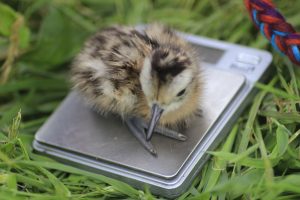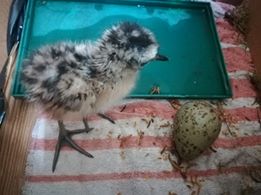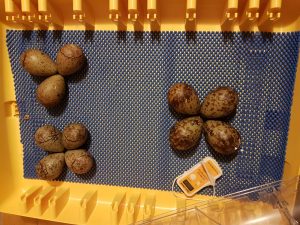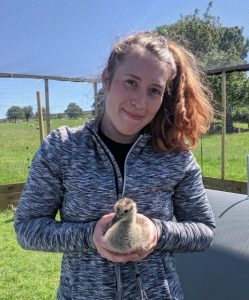A look back at headstarting with curlew officer, Amber Bicheno.
My time with Curlew Country could only really be described as varied. I started out as a trainee back in 2017 with what was then the Stiperstones and Corndon Landscape Partnership Scheme. I was doing bits of office work and field work mingled together as part of my diploma in work-based environmental conversation. That first year of my involvement was the third of data gathering, to try and determine why curlew in the area were failing to breed, as well as the first trials of different intervention methods. It was an interesting point to join in, as 2018 then saw Curlew Country stepping out alone for the first time, after the end of the wider Landscape Partnership Scheme it was previously a part of. With new hosts, the Game and Wildlife Conservation Trust, and fresh aspirations based on experience, we set out to make a real difference to Curlew.

2018 was the first year we attempted headstarting in earnest; we had successfully released 6 chicks the previous year after their eggs could not be returned to natural nests. We had discovered that although fencing helped more nests reach hatching, it still did not help the chicks, which would quickly leave the protection of the fenced area in search of food. We were the first in the country to gain a licence to headstart curlew, and immediately set to work.

With a relatively small budget, that first year definitely had its faults. We learned quickly that our basic equipment was not as good as it could be, and the increase in scale brought with it a much-increased workload (and a good amount of stress!). Despite our shortcomings, we were exceptionally pleased to release 21 curlew chicks into the wild, a significantly better outcome than the 0 birds from 30 wild nests in previous years.
In 2019, we stepped our efforts up a notch once again, thanks to partnering with the Wildfowl and Wetlands Trust (WWT) and additional assistance from Chester Zoo. The avicultural team from WWT were incredibly helpful, and I learnt a lot from their expertise and gained confidence in the handling, incubation and rearing processes. WWT brought new high-end incubators, especially designed rearing enclosures and wonderful staff, 2019’s headstarting efforts resulted in the release of 33 chicks!

After my (quite in-depth) taste of the avicultural world, I attended an avian egg incubation workshop at the start of 2020 to really get to grips with all things egg related. This intensive 5-day course covered topics such as egg and embryo development, hatchability factors, candling, egg-weight loss management, and even egg repair and hatching assistance. Learning of all the intricacies involved in the incubation process from world-leading experts was invaluable and helped prepare me for what I had hoped to be an excellent year of head-starting.

Of course, the onset of Covid-19 scuppered those plans and put everything on hold, although we still managed to get Curlew Cam up on a nest which helped me to stay somewhat sane and get my curlew fix. The training and planning have not been wasted however, as this year we will be going ahead with headstarting and I cannot wait to get back into the swing of all things egg and incubation. With lockdown rules continuing, I am thinking of new ways to train up our dedicated volunteers before the season starts and putting measures in place to ensure everyone’s safety – curlew or human.

